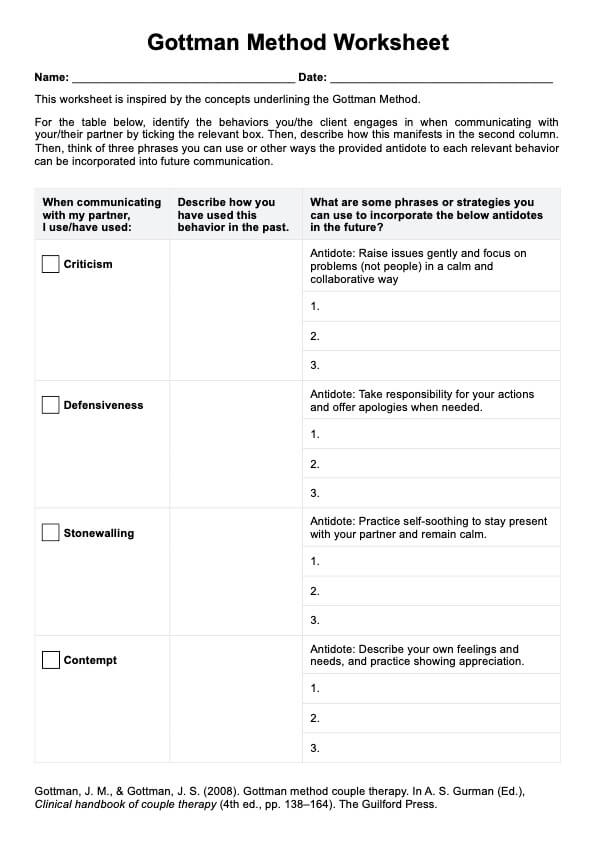The three main components of the Gottman Method include Gottman Method couple therapy, interventions based on research with real couples, and strategies to improve emotional connection. These components help couples navigate conflict and build a stronger, more resilient relationship.

Gottman Method Worksheets
Help your clients stave off the four horsemen of relationships through this Gottman Method Worksheet!
Gottman Method Worksheets Template
Commonly asked questions
Yes, the Gottman Method is worth it for many couples seeking to build or maintain a healthy relationship. By using evidence-based strategies like the Gottman couples' worksheets, couples can improve their communication, resolve conflicts, and strengthen their emotional connection.
Completing this worksheet is a great way for your clients to learn to take responsibility for their part in their relationship conflicts by practicing self-reflection. Coming up with specific instances of times they have engaged in one or more of the relationship horsemen will motivate them to acknowledge their past behavior and move forward in a different way.
EHR and practice management software
Get started for free
*No credit card required
Free
$0/usd
Unlimited clients
Telehealth
1GB of storage
Client portal text
Automated billing and online payments











